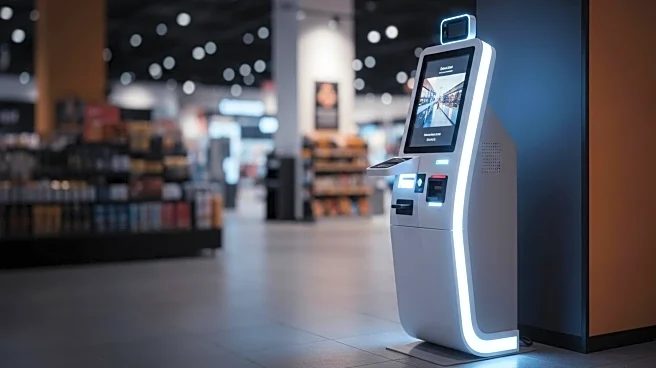What's Happening?
The self-checkout system market is anticipated to expand significantly, with projections indicating growth from $5.9 billion in 2024 to $16.01 billion by 2034. This growth is driven by the increasing adoption of technologies that allow consumers to process purchases independently, without cashier assistance. The market includes hardware such as kiosks, barcode scanners, and payment terminals, as well as software for transaction management and integrated systems for inventory management and customer data analytics. The demand for retail efficiency, improved customer experiences, and the mitigation of labor shortages are key factors contributing to this trend. Businesses are increasingly pursuing automation and digital transformation strategies, which further enhance the market's growth potential across various retail and service sectors.
Why It's Important?
The expansion of the self-checkout system market reflects a broader shift towards automation and efficiency in the retail sector. This trend is likely to impact U.S. industries by reducing labor costs and enhancing customer service experiences. Retailers adopting these systems can benefit from streamlined operations and potentially increased sales due to improved customer satisfaction. However, the initial investment costs and potential risks such as theft and maintenance challenges may pose obstacles. The growth of this market also highlights the increasing importance of technology in retail, which could lead to further innovations and changes in consumer shopping behaviors.
What's Next?
As the market continues to grow, retailers may focus on integrating more advanced technologies such as artificial intelligence and machine learning to optimize inventory management and customer analytics. The rise of omnichannel retail strategies will likely encourage further adoption of self-checkout systems, ensuring seamless integration between online and in-store experiences. Additionally, sustainability and energy efficiency are becoming increasingly important, with retailers seeking eco-friendly systems that minimize energy consumption and paper usage.









